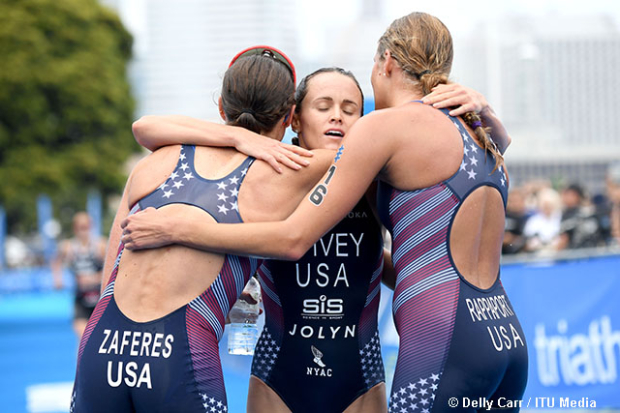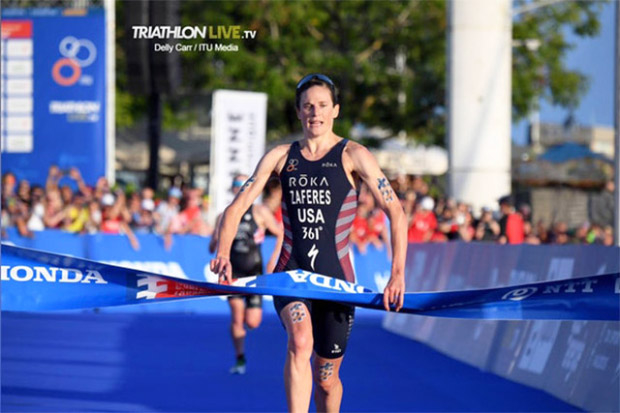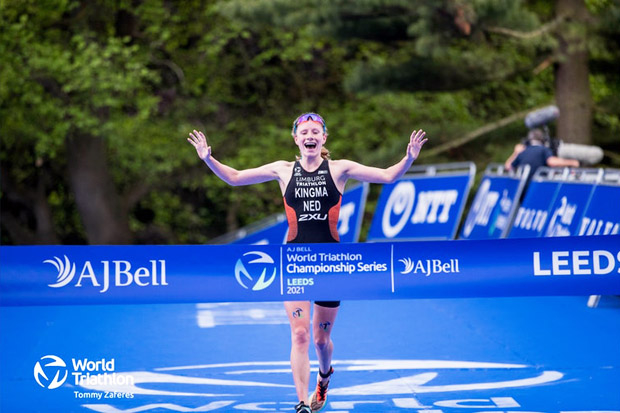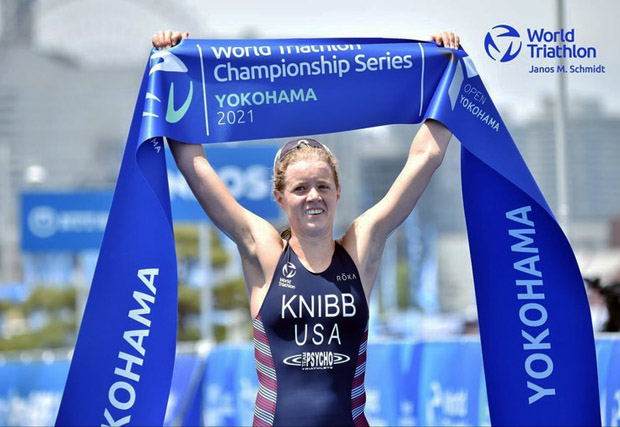On the USAT Olympic Selection
The most famous Olympic Trials flameout belongs to Dan O’Brien. His no-height in the decathlon pole vault at the 1992 Trials torpedoed his Olympic participation. All’s well that ends well – sort of – and O’Brien rebounded to win Olympic Gold in 1996. But to my recollection that particular instance caused National Federations to shiver, and NFs in various sports now reserve at least 1 slot for “the office,” rather than for the field of play.
Some national federations – including in triathlon – make all their selections in the office. USA Triathlon leaves it up to athlete performances in designated races, retaining only the final slot for the office to choose (in a process made explicit to the athletes, with their input, well before Olympic qualifying commences). That makes sense, because it’s not only the athlete’s misadventure (in O’Brien’s case), there are things triathletes cannot always control (mechanical or no-fault crash on the bike).
In the U.S., the two female athletes who qualified in a “trials” type process were Summer Rappaport and Taylor Knibb. America qualified 3 women for the Olympics, and for America’s 3rd choice the Federation elected to send Katie Zafares, choosing her over Taylor Spivey (and other high-achievers like Kristen Kasper).

Because I’m a T&F enthusiast, and because I remember pounding my head on the kitchen table after O’Brien’s no-height, I embrace the idea of one slot awarded by the NF. I have inquired, and asked my questions, and have not seen any evidence that the selection committee played favorites, or back-room politics, or did its job in any way other than straight-up. But the selection did cause me to consider the drivers that cause an NF to make a selection. “Driver” in this case being the imperative, the ethic, that you follow – that is your guiding principle when making your choice.
For example, you choose the person most likely to get you an Olympic medal. This makes sense, no? If you were the USA T&F back in 1992, you use your discretionary pick to place Dan O’Brien on the Olympic Team. Katie Zafares is your Dan O’Brien, in this analogy. If you roll the clock back to 2019 she was the top female triathlete in the world, period, bar none, and she was a crack member of U.S. Mixed Relay. Katie, like the rest of the team, realized that most or all of 2020 was a no-go in terms of Olympic qualifying and adjusted her training accordingly. In fact, if you use as a data point who is the #1 woman in the world in Olympic Qualification rankings, it’s Katie Zafares.
But there is another driver, which is: Who showed up this year and proved her capacity to prevail in the races leading up to the Olympics? Who showed up at the right place, at the right time? The argument could be answered in one of two ways. Here’s one answer: Rappaport and Knibb. They showed up and prevailed in the two events where Olympic selection depended on winning that particular race.
The other way to look at it is: Fine, but among the rest of the athletes who has distinguished herself in the 4 or 6 months prior to the Games? That has to be Taylor Spivey. She is no fluke or new kid on the block. Spivey is ranked #4 in the world.
Two-thirds of all Slowtwitchers answering our poll on this feel that Spivey should be given the discretionary Olympic slot. One-third feel it should be Zafares. I am undecided. It is defensible to stipulate that Katie Zafares is most likely among the two to the medal, because she’s proven she has the capacity to win, while Taylor Spivey has proved herself an the eminently reliable top-5 finisher.
But there's more to consider. First, the USOPC tends to enrich the rich. They are likely to give more money to a federation that earns medals. The driver that steered USAT’s decision was: Which athlete is more likely to earn a medal? That criterion is defensible. It is also the criterion that most benefits the federation.
There is also the question just of fairness, and if I'm Taylor Spivey the reason I'm not on a plane to Tokyo is that people an office disregarded the last 9 months of racing. Check that. They considered the last 9 months in the case of the men; but not for the women. For the girls and women coming up in triathlon’s U.S. pipeline, and for the boys and men as well, how do you ensure that they feel the process was fair? Can they be confident they won’t get the rug pulled out from underneath them after they’ve done what was needed to earn their way onto a team?
But just to make sure you understand how very hard this decision was: Exactly one year before Taylor Spivey placed 4th (to Katie Zaferes’ 5th) at the Hamberg Wasser World Triathlon in September of last year Katie Zafares won the Grand Final in Lausanne. She was almost unbeatable among stacked fields throughout 2019 (winning WTS Abu Dhabi, Bermuda, Yokohama as well).
As Dave Mason sung it: There ain’t no good guy; their ain’t no bad guy. I respect both approaches when picking that final selection. Choosing the best on-paper medal contender makes sense. Choosing the person who’s earned the slot through superior performances in the 9 months leading up to the Games makes sense. There’s only you and me and we just disagree. (If in fact we do.) I’m reasonably confident that the U.S. national federation made its choice using goodwill and I, along with virtually all Americans, will cheer heartily for the entire team as it races in Japan (and with eagerness, as for the first time in my memory our men, our women, and our relay all contain numerous medal contenders).
But when the dust settles, I would like USAT to explain what its drivers are and will be when making these kinds of selections, and to make sure that these are the appropriate imperatives for that selection. Our national governing body should note with pride and pleasure that only 27 percent of our poll’s respondents said they do not follow Olympic Triathlon. This is what our NF wants. Heck, they livecast the Olympic team selections. USAT sought the attention of triathletes and got it. We're fans, and we're watching. There are consequences to having our attention, which is the conversation we now want to have not who you picked, but how you picked.




